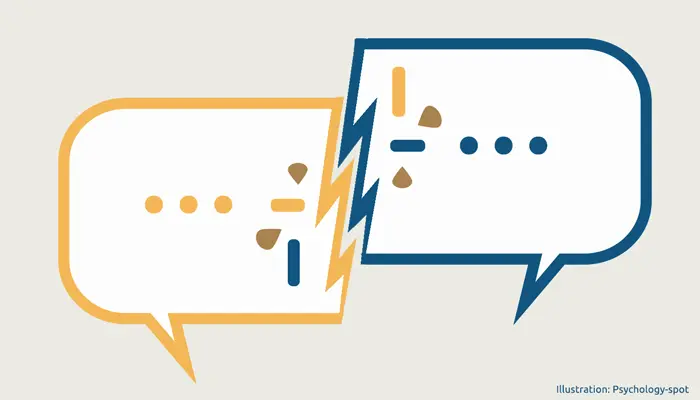
Depression changes everything, from the way we move to our sleep and, of course, the way we interact with those around us. In fact, it is also expressed in our language. The “depression language” can be seen in the poetry of Sylvia Plath and the songs of Kurt Cobain, who committed suicide after a series of depressive states.
Psychologists have long deepened in the “depression language”. Now a study realized at the University of Reading offers new clues about the words that can help us detect that a person suffers from depression.
Traditionally, this type of linguistic analysis has been carried out by researchers, who read and take notes of the words that prevail in depressive states. Currently, computerized methods of text analysis allow processing this information with greater reliability, revealing details that may go unnoticed to the researchers.
The language can be separated into two components: content and style. The content is related to what we express, that is, the meaning of the discourse. Therefore, it is not surprising that people suffering from depression use an excessive amount of words that convey negative emotions, specifically adjectives and adverbs such as “lonely”, “sad” or “miserable”.
However, the use they make of pronouns is even more interesting. Depressed people use more pronouns in the first person of the singular, such as “I” and “me”. In contrast, they use few second and third person pronouns, such as “they” or “you”.
This pattern in the use of pronouns suggests that people with depression are overly focused on themselves and very little connected with the others. In other words, these people experience great loneliness and are immersed in their thoughts. In fact, the researchers say that the pronouns are actually more reliable for identifying depression than words that express negative emotions and feelings.
The style of the depressive language
The style of language is related to the way we express ourselves. Analyzing the data of more than 6,400 people who wrote in mental health forums, the psychologists have appreciated that people with depression often use “absolutist words”, which transmit absolute magnitudes or probabilities, such as “always”, “nothing” or “completely”.
The presence of this type of words in everyday speech reflects a black and white view of the world. In fact, the use of absolutist words increases enormously in those who already have suicidal ideas, which is not strange since in the past it was found that absolutist or dichotomous thinking, is at the base of many cognitive distortions and irrational beliefs that end up triggering affective disorders. This indicates that often, the person with depression does not find alternatives since the disorder itself prevents him/her from thinking in broader terms.
Sources:
Johnstone, T. & Al-Mosaiwi, M. (2018) In an Absolute State: Elevated Use of Absolutist Words Is a Marker Specific to Anxiety, Depression, and Suicidal Ideation.Clinical Psychological Science.
Rude, S.; Gortner, E. M. & Pennebaker, J. (2004) Language use of depressed and depression-vulnerable college students. Cognition & Emotion; 18: 1121–1133.
Bucci, W. & Freedman, N. (1981) The language of depression. Bulletin of the Menninger Clinic; 45: 334–358.



